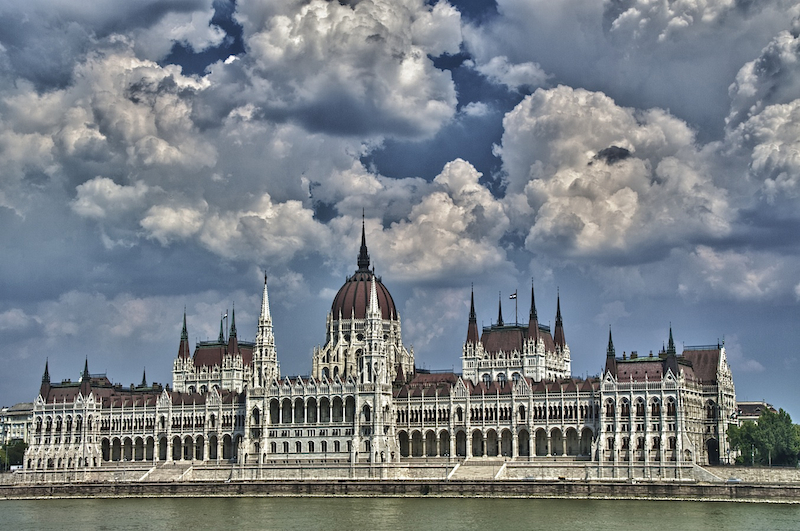Hungarian national awakening on:
[Wikipedia]
[Google]
[Amazon]

 Hungarian nationalism developed in the late 18th century and early 19th century along the classic lines of scholarly interest leading to political nationalism and mass participation. In the 1790s, Hungarian nobles pushed for the adoption of Hungarian as the official language rather than Latin.
Hungarian nationalism developed in the late 18th century and early 19th century along the classic lines of scholarly interest leading to political nationalism and mass participation. In the 1790s, Hungarian nobles pushed for the adoption of Hungarian as the official language rather than Latin.
Nationalism in Hungary, 1848-1867
Steven W. Sowards, Michigan State University
 Hungarian nationalism developed in the late 18th century and early 19th century along the classic lines of scholarly interest leading to political nationalism and mass participation. In the 1790s, Hungarian nobles pushed for the adoption of Hungarian as the official language rather than Latin.
Hungarian nationalism developed in the late 18th century and early 19th century along the classic lines of scholarly interest leading to political nationalism and mass participation. In the 1790s, Hungarian nobles pushed for the adoption of Hungarian as the official language rather than Latin.
Parties
Current
*Our Homeland Movement
Our Homeland Movement (Hungarian language, Hungarian: ''Mi Hazánk Mozgalom,'' MHM) is a Hungarian Far-right politics, far-right political party founded by Ásotthalom mayor and former Jobbik Vice-President László Toroczkai and other Jobbik dis ...
(2018–present)
* Jobbik (2003–present)
*Volner Party Volner or Völner is a Hungarian language occupational surname for a ''wool worker'' (from German ''Wolle'' ''wool'', cf. Wollner) and may refer to:
* János Volner (1969), far-right Hungarian politician
*Pál Völner
Dr. Pál Völner (born 30 ...
(2020-present)Former
*Hungarian Justice and Life Party
The Hungarian Justice and Life Party ( hu, Magyar Igazság és Élet Pártja, MIÉP) was a nationalist political party in Hungary that was founded by István Csurka in 1993.
In the 1998 legislative elections, the party won 5.5% of the votes and ...
(1993–2021) merged with Our Homeland Movement
* Party of the Hungarian Interest (1993–2005)
* People of the Orient Party – Christian Democrats (1989–1998)
* Arrow Cross Party (1935–1945)
*Christian National Socialist Front
The Christian National Socialist Front ( hu, Keresztény Nemzeti Szocialista Front, KNSZF) was a far-right political party in Hungary during the late 1930s.
History
The party was formed in 1937 as a breakaway from the new United Christian Party ...
Dieter Nohlen & Philip Stöver (2010) Elections in Europe: A data handbook, p911 (1937–1940)
* United Hungarian National Socialist Party (1936–1940)
* National Front (1936-1939)
* Hungarian National Socialist Agricultural Labourers' and Workers' Party (1932–1945)
*Hungarian National Independence Party
The Hungarian National Independence Party ( hu, Magyar Nemzeti Függetlenségi Párt, MNFP), also known as the Party of Racial Defence, was a political party in Hungary in the interwar period.
History
The party was established in 1923 by a righ ...
(1923-1928)
* Unity Party (1922–1944)
Movements
* Force and Determination (2017–present) *Sixty-Four Counties Youth Movement
The Sixty-Four Counties Youth Movement ( hu, Hatvannégy Vármegye Ifjúsági Mozgalom, HVIM) is a far-right movement originating in Hungary and also present in Romania, Slovakia and Serbia, advocating the unification of all ethnic Hungarians tha ...
(2001–present)
*Pax Hungarica Movement
The Pax Hungarica Movement ( hu, Pax Hungarica Mozgalom; PHM) was a far-right Hungarist and neo-Nazi movement, founded on 26 January 2008 to represent an alternative against the Hungarian National Front
The Hungarian National Front ( hu, Magyar N ...
(2008–2017)
* Hungarian National Front (1989-2016)
See also
*Doctrine of the Holy Crown
The Holy Crown of Hungary ( hu, Szent Korona; sh, Kruna svetoga Stjepana; la, Sacra Corona; sk, Svätoštefanská koruna , la, Sacra Corona), also known as the Crown of Saint Stephen, named in honour of Saint Stephen I of Hungary, was the ...
* Hungarian irredentism
Hungarian irredentism or Greater Hungary ( hu, Nagy-Magyarország) are irredentist political ideas concerning redemption of territories of the historical Kingdom of Hungary. Targeting at least to regain control over Hungarian-populated areas in H ...
* Hungarian Revolution of 1848
* Hungarian Turanism
* Magyarization
Magyarization ( , also ''Hungarization'', ''Hungarianization''; hu, magyarosítás), after "Magyar"—the Hungarian autonym—was an assimilation or acculturation process by which non-Hungarian nationals living in Austro-Hungarian Transleithan ...
* National symbols of Hungary
* National conservatism
National conservatism is a nationalist variant of conservatism that concentrates on upholding national and cultural identity. National conservatives usually combine nationalism with conservative stances promoting traditional cultural values, ...
* Right-wing populism
Right-wing populism, also called national populism and right-wing nationalism, is a political ideology that combines right-wing politics and populist rhetoric and themes. Its rhetoric employs anti-elitist sentiments, opposition to the Establi ...
* Trianon Syndrome
References
Further reading
*External links
Nationalism in Hungary, 1848-1867
Steven W. Sowards, Michigan State University
Nationalism
Nationalism is an idea and movement that holds that the nation should be congruent with the State (polity), state. As a movement, nationalism tends to promote the interests of a particular nation (as in a in-group and out-group, group of peo ...
{{Hungary-stub